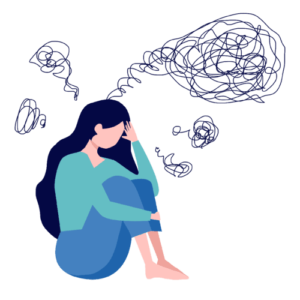
Marijuana Addiction Test
Answer these simple questions to understand more about your Marijuana Addiction. We share instant results and keep your information confidential.

What is Marijuana Addiction Test?
Marijuana addiction assessment is a structured evaluation used to determine the extent of an individual’s dependency on cannabis. It involves screening for withdrawal symptoms, patterns of use, and associated negative consequences. Professionals use various assessment tools to gauge the severity of addiction and tailor appropriate treatment plans. Identifying the level of addiction assists in addressing potential risks, providing necessary interventions, and supporting individuals in managing or overcoming their marijuana dependence.
Who can benefit from this Marijuana Addiction Test?
Individuals who regularly use marijuana and suspect they may have developed a dependency or addiction can benefit from the Marijuana Addiction Test. Additionally, people experiencing negative consequences from their marijuana use, such as impaired functioning, difficulties in personal or professional life, or health issues, can benefit from this assessment. The evaluation helps identify the level of addiction and guides healthcare professionals in devising suitable treatment approaches, enabling individuals to address their addiction and make informed decisions about their cannabis use to improve their overall well-being.


Marijuana Addiction Test Accuracy
The accuracy of a Marijuana Addiction Test depends on the quality of the assessment tools used and the expertise of the professionals conducting the evaluation. When well-designed and administered by qualified healthcare providers, these assessments can provide valuable insights into an individual’s level of marijuana addiction. However, like any assessment, it may have limitations and can be influenced by various factors, such as self-reporting bias. A comprehensive assessment that considers multiple factors and corroborates information from different sources can enhance accuracy, leading to more effective treatment planning and support for those dealing with marijuana addiction.
Types of Marijuana Addiction Test
Addiction Severity Index (ASI):
A comprehensive assessment tool that evaluates an individual’s drug use history, medical, psychological, and social functioning, helping to determine the severity of marijuana addiction.
Marijuana Motives Measure (MMM):
Assesses the reasons for using marijuana, including coping, enhancement, & social motives, helping to understand the underlying motivations driving marijuana use & addiction.
Timeline Follow-Back (TLFB):
A retrospective assessment method that tracks an individual’s daily marijuana use over a specific period, providing insight into the frequency and intensity of consumption
Cannabis Use Disorder Identification Test (CUDIT):
A brief self-report questionnaire that assesses patterns of cannabis use, associated problems, and dependency symptoms, aiding in identifying potential addiction issues.
Substance Abuse Subtle Screening Inventory (SASSI):
A screening tool that assesses substance abuse, including marijuana, by identifying various risk factors and behavioral indicators associated with addiction.
Diagnostic and Statistical Manual of Mental Disorders (DSM-5):
The DSM-5 provides criteria for diagnosing Cannabis Use Disorder, enabling clinicians to evaluate the severity of marijuana addiction based on specific behavioral and physiological symptoms.
Handling Marijuana Addiction
Handling marijuana addiction can be challenging, but with the right approach and support, it is possible to overcome it. Here are some steps and strategies that can help:
- Acknowledge the addiction: The first step is to recognize and accept that there is a problem with marijuana use. Denial can be a significant obstacle to recovery.
- Seek professional help: Consider reaching out to a healthcare professional or addiction specialist who can provide guidance and support tailored to your specific situation. They can help you create a personalized treatment plan.
- Develop a support network: Surround yourself with supportive and understanding individuals, such as friends, family, or support groups. Having a network of people who encourage your recovery can be crucial in maintaining motivation and accountability.
- Set clear goals: Establish realistic and achievable goals for reducing or quitting marijuana use. Breaking the process into smaller steps can make it more manageable and less overwhelming.
- Learn coping mechanisms: Find healthy alternatives to cope with stress, anxiety, and other triggers that may have led to marijuana use. Exercise, meditation, hobbies, and counseling are some examples of positive coping strategies.
- Avoid triggers: Identify situations, places, or people that may tempt you to use marijuana and try to avoid them, especially in the early stages of recovery.
- Create a new routine: Changing your daily routine can help break the association between certain activities and marijuana use. Replace old habits with new, healthier ones.
- Practice self-care: Take care of your physical and mental well-being. Ensure you are getting enough sleep, eating nutritious foods, and engaging in activities that bring you joy.
- Consider therapy: Cognitive-behavioral therapy (CBT) and motivational enhancement therapy (MET) are commonly used approaches to treat marijuana addiction. Therapy can help address underlying issues and provide strategies for managing cravings and triggers.
- Monitor progress: Keep track of your progress and celebrate each milestone achieved. Recognizing the positive changes in your life can reinforce your commitment to recovery.
- Be patient and kind to yourself: Recovery is a process, and setbacks may occur. Remember that it’s normal to face challenges along the way. Be compassionate to yourself and focus on learning from any mistakes.
Remember, each individual’s journey to recovery is unique, and there is no one-size-fits-all approach. If you or someone you know is struggling with marijuana addiction, it’s essential to seek professional help and support to find the most appropriate treatment plan for your specific needs.